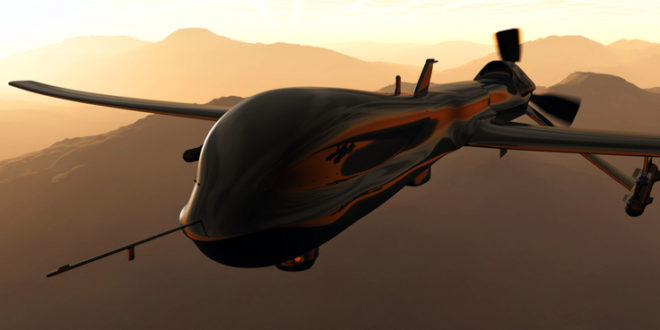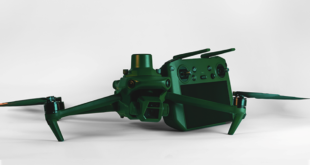Cyber
Pentagon wants industry base to close IP theft gaps
The Defense Department policy leaders want contractors to better identify where they may be vulnerable to intellectual property theft and how that theft might impact national security.
Air Force Lt. Gen. David Allvin, the Joint Staff’s strategy director for plans and policy, said one of the major challenges in combating intellectual property theft is getting companies to understand how a seemingly innocuous technology can turn into a national security threat.
“It becomes a relationship between us and the defense industrial base,” and about “understanding this relationship about what is there in the commercial industry that, in it of itself, doesn’t qualify as classified — but when it’s aggregated with others — can put together pieces that in the aggregate can be classified,” Allvin said in testimony on strategic threats and challenges before the Senate Armed Services Committee Dec. 5.
The Defense Department’s Joint Artificial Intelligence Center is heading the effort, said John Rood, the undersecretary of defense for policy at the hearing.
DOD and White House have been focused on curbing intellectual property theft, particularly from China, which has been investing heavily in military cyber and information warfare capabilities. The intelligence community has also zoomed in on IP theft. In October, Army Gen. Paul Nakasone, the National Security Agency chief, raised awareness on the issue, saying the agency’s new cyber directorate would enhance cybersecurity advisories.
Lethal AI
For DOD, Allvin said the goal is to find out those gaps so industry “can have a better understanding of the part that they play in the whole, where they may be unwitting — or certainly not malign — in their intent but that their activities when put together with other activities generate that threat.”
Sen. Gary Peters (D-Mich.) wanted to know how it is possible to be certain whether there is human control of autonomous weapons and an international agreement is needed to govern the future of algorithmic and AI-driven warfare.
Rood said he didn’t know if the increasing use of autonomous systems, such as unmanned aerial vehicles, “necesitate itself into some internationally binding agreement” that would fall under the State Department.
Allvin said that DOD would have to alter warfare doctrine to account for the speed of machine-based decision-making.
“I think our doctrine is going to need to adjust to understand the increased speed — it’s the speed, part of it. If it becomes just speed for speed’s sake, we may not have accuracy, so that’s where the humans come in to understanding the operational strategic impact of tactical speed,” Allvin said. “Decision speed is also key, not just execution speed.”
The three-star general said that, tactically and operationally, everything will increase speed over time, and DOD needs the “ability to understand the second and third order impacts” of artificial intelligence being used.
“One can imagine as these advanced weapons are being developed, leveraging big data and algorithm development for better decision-making, not decision-making in lieu of a human, but presenting information for better human decision-making faster.”
This article first appeared on FCW, a partner site of Defense Systems.
About the Author

Lauren C. Williams is a staff writer at FCW covering defense and cybersecurity.
Prior to joining FCW, Williams was the tech reporter for ThinkProgress, where she covered everything from internet culture to national security issues. In past positions, Williams covered health care, politics and crime for various publications, including The Seattle Times.
Williams graduated with a master’s in journalism from the University of Maryland, College Park and a bachelor’s in dietetics from the University of Delaware. She can be contacted at [email protected], or follow her on Twitter @lalaurenista.
Click here for previous articles by Wiliams.
https://defensesystems.com/articles/2019/12/11/dod-export-lethal-ai.aspx
 Unmanned Aerial Vehicle The latest drone news
Unmanned Aerial Vehicle The latest drone news




